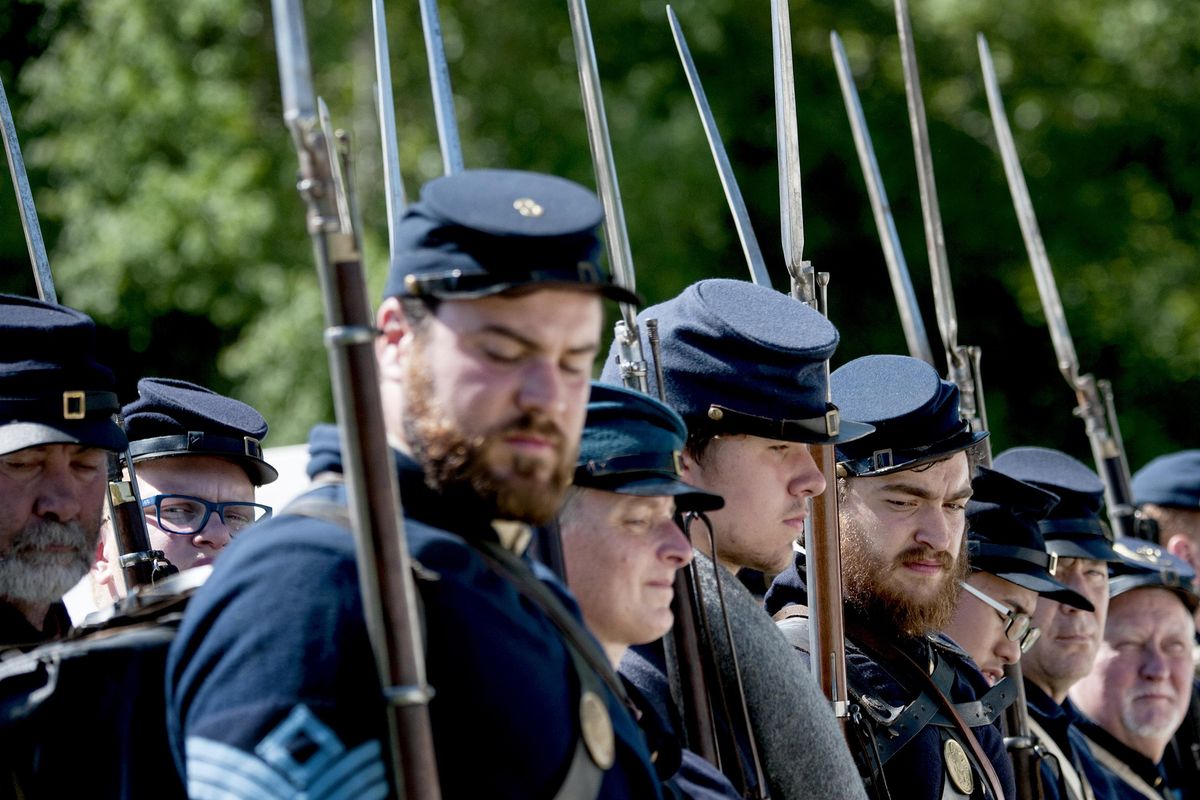Civil War reenactment recalls Peninsula Campaign of 1862

The first to die Sunday at the Battle of Deep Creek were Confederate infantry soldiers, but when the cannons stopped firing, there were dozens of blue and gray uniforms strewn across Deep Creek Farm.
Civil War re-enactors worked to bring life to a battle from the Peninsula Campaign of 1862, with medics running onto the field to tend to leg and arm wounds, and in some cases amputate limbs.
A few hundred spectators watched the battle, one of a handful of re-enactments held at the Civil War camp over Memorial Day weekend. Organizers said this year’s battle was more historically accurate and better choreographed than in previous years.
“We took one more step up,” said Gary Michie, a co-organizer of the weekend who plays a Union major in the First Michigan Artillery.
The war remains the deadliest for American soldiers in U.S. history, making Memorial Day weekend a fitting time to remember it. The Peninsula Campaign, which ran from March to July in Virginia, marked the first time Union Gen. George McClellan tried to capture the Confederate capitol of Richmond.
Though the campaign started off well, he was pushed back by Confederate Gen. Robert E. Lee, and ultimately removed from command of the Union Army later that year.
“He was not the kind of field commander that Lincoln needed,” said Don McConnell, a re-enactor who portrays Gen. Ulysses S. Grant.
The battle began with Union artillery perched on a hill as Confederate infantry advanced slowly. Cavalry from both sides rode in circles, firing at each other before retreating.
Confederate soldiers overran the one Union cannon positioned on flat ground, but struggled to take the hill. Eventually, the battle came to a draw, with both sides saluting their fallen soldiers.
Michie said that’s how much of the Peninsula Campaign went: Union artillery held the Confederate Army to a draw, preventing them from getting to the infantry. That gave infantry soldiers time to march to the next hill and set up before the artillery followed.
“It was sort of a leapfrog thing,” he said.
Women were well-represented Sunday, both in camp and on the battlefield. Michie’s wife, Darna, who organizes the weekend, said many female soldiers enlisted as men and weren’t found out until they were injured in battle.
“They didn’t just knit socks,” she said.
McConnell started re-enacting in 2002 after a 26-year career in the Army. He found the competition to play Gen. Grant heavy on the East Coast, but had more luck when he moved to Deer Park to be closed to family.
Re-enactments, he said, help convey the scale of the war and show some of the bloodshed.
“To understand the war, in addition to reading the materials, you have to visit the battlefields,” he said.
Aside from battles, the weekend includes historical talks at a central pavilion and demonstrations from blacksmiths, medics and other showing what life was like during the war. The re-enactment will continue on Memorial Day.